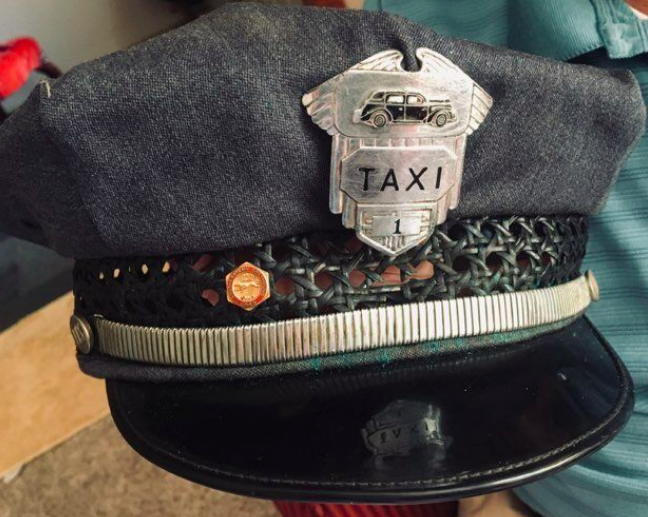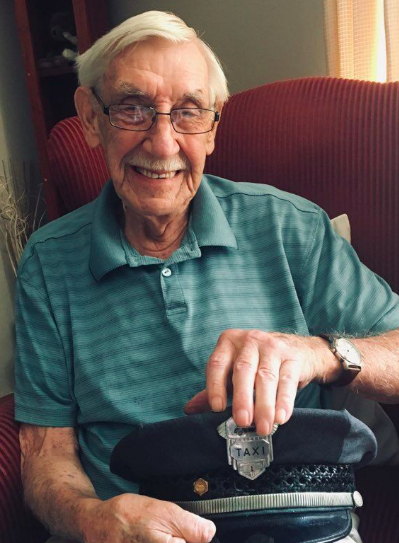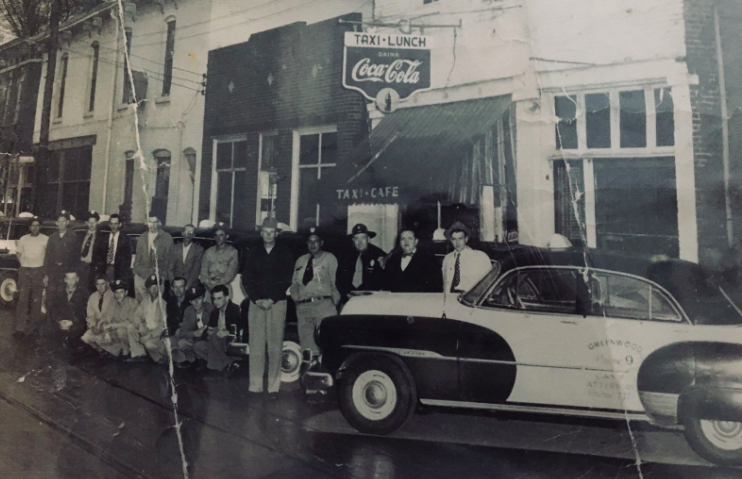Photography Provided
Nearly 80 years ago, transportation was drastically different than it is today. Sometimes getting from Point A to Point B was simply not possible, due to gas rationing and buying a vehicle was cost-prohibitive for many folks. In 1942, Sarah Jackson took note of these issues, finding that many of her friends and acquaintances had trouble getting to church and doctor’s appointments. Sarah spoke to her husband, Virgil, and convinced him that they should use her inheritance to start The Greenwood Taxi.
 Virgil, a driver with Suburban Bus Lines, had some insights into the transportation business and pulled some strings to procure one car. Their son, Phil, now 82, vividly recalls when a Chevrolet pulled into the driveway, wrapped in a big red ribbon (Phil was six at the time). He also recalls the phone number of his parent’s taxi company: simply call 9.
Virgil, a driver with Suburban Bus Lines, had some insights into the transportation business and pulled some strings to procure one car. Their son, Phil, now 82, vividly recalls when a Chevrolet pulled into the driveway, wrapped in a big red ribbon (Phil was six at the time). He also recalls the phone number of his parent’s taxi company: simply call 9.
“Our home number was 98, so when the phone rang twice, it was a call for the house. If it rang once, it was for the Taxi,” Phil says. “When the Taxi phone rang, both parents would take turns with the Taxi runs as dad was still working for the Suburban Bus Lines part-time.”
Sadly, when Phil was 7, his mother contracted tuberculosis and passed away in June 1944. Virgil quit his job at the Suburban Bus Lines and devoted all his time to his wife’s taxi service. Up until the early 1950s, there was no “crew,” just a family operation.
By 1953, Phil estimates that his dad owned 13 taxis painted black and white with the “Greenwood Taxi” on each side. In addition, Virgil had hired several drivers by this time.
“When the phone rang, dad would jump up and make a run,” Phil says. They often drove between Greenwood and Camp Atterbury, the military and civilian training base in Edinburgh.
The fare was typically 25 cents anywhere within the Greenwood City limits. A run to and from Greenwood to Camp Atterbury was $10, which normally was split between the soldiers.
“Greenwood Taxi, which could benefit from a taxi call answering service, became a pretty thriving business,” says Phil, who occasionally operated the phones. “But my main job was to clean the outside of the cars and wash the windows and seats in the summers. Back then, both drivers and passengers would be able to smoke, and the taxis needed cleaning daily.”
As a teenager at Greenwood High, Phil would rather have been doing other things. Finally, his dad made him a deal — either go out for sports or work at the Taxi Company. Suddenly, Phil had a voracious appetite for every sport — football, basketball, baseball and track.
“I did it all to keep busy,” says Phil with a laugh. “Beats cleaning those taxis.”
After 12 to 18 months, the cars would rack up 100,000 miles so Virgil would install a new transmission to keep them going for another six months or so, or he would repaint the cars and sell old taxis for $600. If a driver would go through more front/back brakes, Virgil thought it should be the driver’s responsibility to install new breaks for riding them. He kept his Taxis in exceptional working order. The parked Taxi cars were in the family’s backyard when needed for transport.
“When I got my license, Dad said, ‘Go out back and pick out whatever car you want,’” Phil says. “I was young and tooling around town and wrecked one of the Chevrolets within a year. I called dad, and said, ‘Hey, the car is upside down on County Line Road.’”
Phil vividly recalls the incident.
“Dad asked, ‘Are you okay?’ I said ‘yes.’ Dad said, ‘Ok.’”
There was a positive aspect after all. Virgil traded the wrecked car for a 1953 Plymouth with only 30,000 miles.
Virgil remarried in 1945, to Gladys, who had a son Jon Scott. Then together they had four children: Tom Jackson, Larry Jackson, Nedra Jackson Warnell and Ted Jackson.
“It was a yours, mine and ours situation,” says Phil, who moved in with his Aunt Susie and Chester Wood upon graduation. Phil left to join the U.S. Air Force but was declined due to partial colored blindness so when he came home, he joined the U.S. Army.
 In 1961, Virgil passed. Gladys and Jon Scott ran the Greenwood Tax until Gladys’ death in 1962. Phil, at this time, was married and working for the Greenwood Postal Service. He was asked to take over the company for a year to re-establish its value.
In 1961, Virgil passed. Gladys and Jon Scott ran the Greenwood Tax until Gladys’ death in 1962. Phil, at this time, was married and working for the Greenwood Postal Service. He was asked to take over the company for a year to re-establish its value.
The Greenwood Taxi was sold in 1964. Phil returned to the Post Office and attended UIndy to pursue his own dreams of teaching. He went on to teach U.S. History at Franklin Community High School, sharing a room with the infamous Hall of Fame Basketball player Robert Polk “Fuzzy” Vandivier, who returned to his alma mater to coach for 18 years and served as athletic director for another 17 years.
“I had a great experience with Fuzzy,” Phil says.
Phil later worked for the State of Department of Education as well as Southport High School and Greenwood High School before retiring at age 80.
Phil and his wife Shirley, Jon and Sherry Scott (deceased) were blessed to have had the opportunity to assist in raising four children. Phil and Shirley have two children, three grandchildren and three great children.
As Phil reflects on the decades working at the Greenwood Taxi, he is grateful for the opportunities and has many fond memories.
“I just don’t miss washing cars,” he says.






